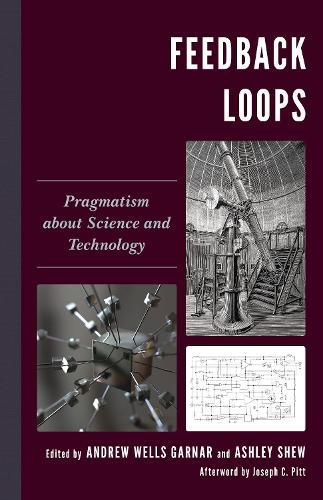Readings Newsletter
Become a Readings Member to make your shopping experience even easier.
Sign in or sign up for free!
You’re not far away from qualifying for FREE standard shipping within Australia
You’ve qualified for FREE standard shipping within Australia
The cart is loading…






In a world of information technologies, genetic engineering, controversies about established science, and the mysteries of quantum physics, it is at once seemingly impossible and absolutely vital to find ways to make sense of how science, technology, and society connect. In Feedback Loops: Pragmatism about Science & Technology, editors Andrew Wells Garnar and Ashley Shew bring together original writing from philosophers and science and technology studies scholars to provide novel ways of rethinking the relationships between science, technology, education, and society. Through critiquing and exploring the work of philosopher of science and technology Joseph C. Pitt, the authors featured in this volume explore the complexities of contemporary technoscience, writing on topics ranging from super-computing to pedagogy, engineering to biotechnology patents, and scientific instruments to disability studies. Taken together, these chapters develop an argument about the necessity of using pragmatism to foster a more productive relationship between science, technology and society.
$9.00 standard shipping within Australia
FREE standard shipping within Australia for orders over $100.00
Express & International shipping calculated at checkout
In a world of information technologies, genetic engineering, controversies about established science, and the mysteries of quantum physics, it is at once seemingly impossible and absolutely vital to find ways to make sense of how science, technology, and society connect. In Feedback Loops: Pragmatism about Science & Technology, editors Andrew Wells Garnar and Ashley Shew bring together original writing from philosophers and science and technology studies scholars to provide novel ways of rethinking the relationships between science, technology, education, and society. Through critiquing and exploring the work of philosopher of science and technology Joseph C. Pitt, the authors featured in this volume explore the complexities of contemporary technoscience, writing on topics ranging from super-computing to pedagogy, engineering to biotechnology patents, and scientific instruments to disability studies. Taken together, these chapters develop an argument about the necessity of using pragmatism to foster a more productive relationship between science, technology and society.